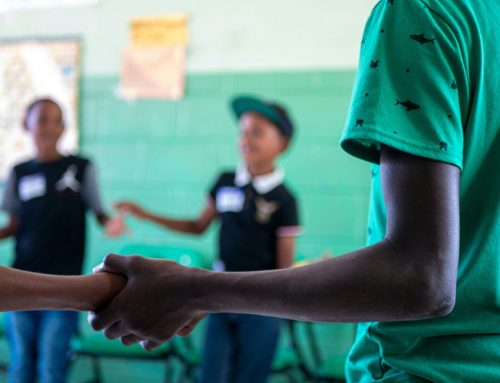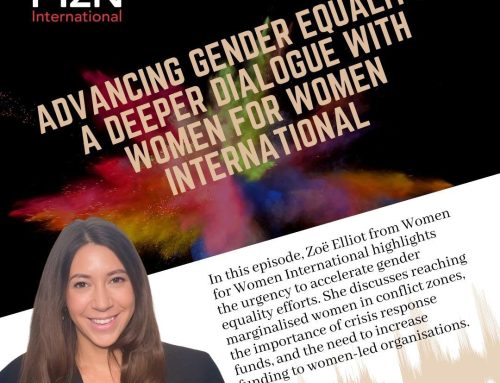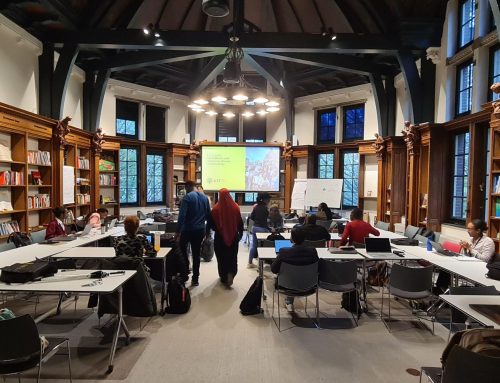Advocating for Donor Responsibility: Ensuring Cost Recovery is Funded to Alleviate the Burden on NGOs
Part 2 of 2 Part Cost Recovery Series
Written by Joseph Nelson, MzN consultant and specialist in financial change management.
Part 2 of MzN’s Cost Recovery Series, Read Part 1 Here.

The localisation agenda is nothing new. Since the mid-1990s, organisations’ codes of conduct and stakeholder initiatives have positioned local actors as a key part of the humanitarian and development process. Despite this and also the impact of Covid 19, which pushed INGOs to recognize the importance of local implementing partners in their programming, the agenda remains in its infancy.
At MzN we work with our partners, often large INGOs, who are still working out what localisation means for them and how to achieve it some 30 years after it was first discussed. Part one of this series looks at the challenges INGOs encounter when it comes to financing their own operations. In this second part, we look at how those funding issues are exacerbated when we discuss local implementing partners.
Localising funding poses complex challenges, including:
- Donor requirements
- The need for transparency and accountability
- Oversight and control
- Legislative issues
- Local partner capacity limitations
This is also sidestepping many of the internal political issues that are present in NGOs of the Global North that hamper the transfer of control and funds to local partners (however, that’s a different topic altogether). Despite the Grand Bargain‘s focus on localisation, which includes increased local funding, strengthened local capacities, enhanced local coordination, and strengthened local partnerships, the most significant challenge remains: funding localisation.
The UN’s Inter-Agency Standing Committee’s 2022 report on the Provision of Overheads to Local and National Partners states that:
“the common practice of not advancing overheads to local and national partners has been increasingly recognized as unfair and at odds with commitments to support institutional development and capacity strengthening.”
The report acknowledged that the insufficient provision of overheads to local implementing partners has hampered localisation efforts, placing the responsibility for change largely on donors.
2023 is marked as the year for change, where donors and INGOs need to alter industry standards for overhead allocations, unrestricted funding, and capacity development.
Additionally, there is a need to change working practices to transfer responsibilities and capacities to local partners.
We have worked with several INGOs in developing their partnership operating models, capacity development and graduation programmes. Despite all the will and energy that our partners have, there still remains obstacles that hinder the ability to effectively support their local partners. These include challenges in transferring knowledge and expertise related to compliance and reporting, as well as paying for the appropriate organisational infrastructure. While there are organisations we work with that do this successfully, we are sadly finding that they are the exception, not the rule. We were left asking ourselves; how will this process ever become systematic and sustainable if donors don’t fund it appropriately?
When we work with our partners to develop their localisation models, we look to determine key areas where we can maximise opportunities to support their localisation work. To achieve successful localisation, we work closely with finance teams to assess the availability of funds that can be allocated differently and leverage the ongoing efforts of internal training departments to enhance partner capacity. Despite the progress made in localisation efforts, it appears that a crucial component is still missing. However, the US IASC report does provide some hope for the future and draws out strong recommendations for donors in 2023 and beyond.
- Organisations must start providing overheads (including unrestricted funding) to local partners.
- The funding of local partners should be integrated into business as usual for donors. Cultural change needs to occur through the socialisation of the idea.
- International organisations that partner with local organisations need to develop clear policies on overheads that include providing overheads as unrestricted funding.
- Changes to policy and practice should be well-publicised and any experiences should be shared to build momentum for wider change.
- International organisations should facilitate opportunities for local organisations to engage with donors directly around their experiences of funding through grant cost recovery mechanisms.
- Those with a platform and a voice should advocate with donors about the barriers they face in providing overheads to their local partners.
With those recommendations in mind, we hold onto hope that 2023 will be the year that donors step up and play their part in funding local partners and fulfilling their commitments to localisation in the sector. We must seize the opportunity to advocate with our donors. NGOs should communicate effectively with their donors to ensure they receive the support they rightfully deserve.
If you want to learn further about what you can do to improve your recovery costs, take a look at our guide ‘How to fund your organisation, not your projects’
Want to know more? Reach out to our team of experts at www.mzninternational.com





